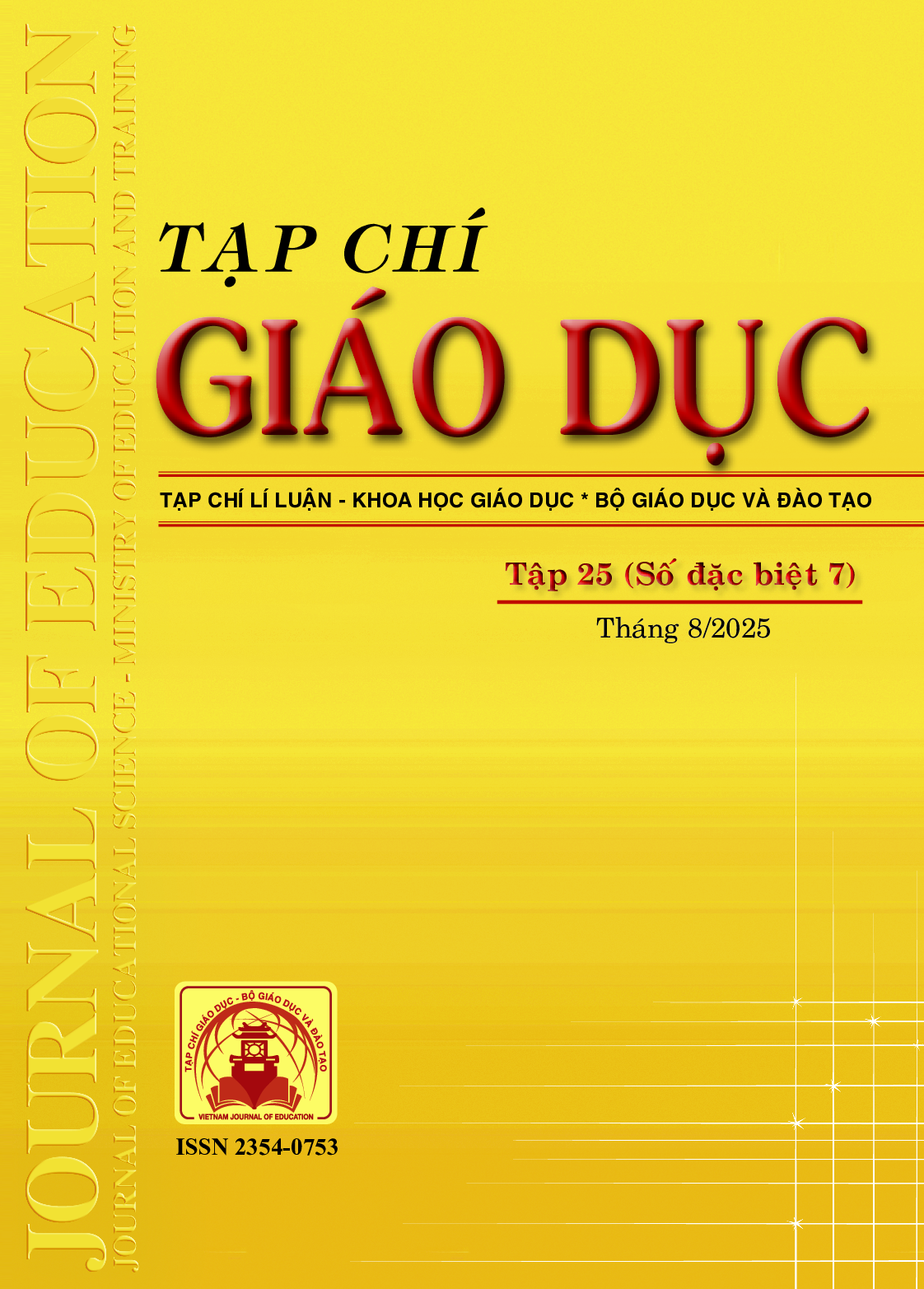Ứng dụng trí tuệ nhân tạo (AI) vào dạy học trải nghiệm trong môn Địa lí ở trung học phổ thông
Tóm tắt
The Ministry of Education and Training has issued a digital competency framework for learners, identifying the application of artificial intelligence (AI) as one of the essential competencies students need to possess. At the same time, Geography is a subject closely linked to the natural, economic, and socio-cultural realities of various territories, regions, countries, and localities. This creates many favorable opportunities for experiential learning with AI integration, contributing to the development of this competency in learners. This study focuses on analyzing the applicability and assessing the suitability of AI tools for experiential learning methods in Geography, thereby developing a process for their integration into teaching. The research findings provide a basis for teachers to select appropriate AI tools and effectively apply them in their teaching practices, meeting the innovative requirements for teaching and learning in high schools.
Tài liệu tham khảo
Almelweth, H. (2022). The effectiveness of a proposed strategy for teaching geography through artificial intelligence applications in developing secondary school students’ higher-order thinking skills and achievement. Pegem Journal of Education and Instruction, 3, 169-176. https://doi.org/10.47750/pegegog.12.03.18
Bộ GD-ĐT (2018). Chương trình giáo dục phổ thông môn Địa lí (ban hành kèm theo Thông tư số 32/2018/TTBGDĐT ngày 26/12/2018 của Bộ trưởng Bộ GD-ĐT).
Bộ GD-ĐT (2025). Quy định khung năng lực số cho người học (ban hành kèm theo Thông tư số 02/2025/TTBGDĐT ngày 24/1/2025 của Bộ trưởng Bộ GD-ĐT).
Đỗ Thị Tố Như, Nguyễn Thị Ngọc Tuyền, Lê Khắc Quynh (2025). Khai thác và sử dụng một số công cụ trí tuệ nhân tạo (AI) trong dạy học môn Khoa học tự nhiên. Tạp chí Giáo dục, 25(5), 36-41.
Lê Thị Lành (2022). Nghiên cứu xây dựng mô hình dạy học trải nghiệm môn Địa lí cho học sinh trung học phổ thông. Đề tài Khoa học và Công nghệ cấp Bộ GD-ĐT, mã số: B2019-DQN-14.
Matkovič, M. (2024). The use of artificial intelligence, virtual and augmented reality in teaching geography in secondary school. Natural Science Education, 1, 42-48. https://doi.org/10.48127/gu-nse/24.21.42
Nguyễn Tất Thắng, Đặng Thị Thu Hà, Lã Đăng Hiệp (2021). Ứng dụng của trí tuệ nhân tạo trong giáo dục. Tạp chí Thiết bị Giáo dục, 245, 1-3.
Trần Minh Tâm (2019). Tìm hiểu về trí tuệ nhân tạo. Tạp chí Khoa học, Trường Đại học Văn Lang, 13, 139-145.
Vladimir Milicević, L. K. (2024). The application of artificial intelligence in education - The current state and trends. International Journal of Cognitive Research in Science, Engineering and Education (IJCRSEE), 12, 259-272. https://doi.org/10.23947/2334-8496-2024-12-2-259-272
Zhengyu Xu, Y. W. (2021). AI applications in education. Lecture Notes of the Institute for Computer Sciences, Social Informatics and Telecommunications Engineering, 356 (pp. 326-339). Virtual event: Springer Nature Switzerland AG. https://doi.org/10.1007/978-3-030-69066-3_29
Đã Xuất bản
Cách trích dẫn
Số
Chuyên mục
Giấy phép

Tác phẩm này được cấp phép theo Ghi nhận tác giả của Creative Commons Giấy phép quốc tế 4.0 .












